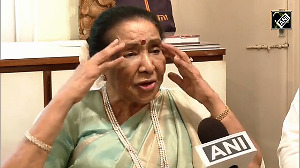Greeting card companies such as Archies and ITC appear to have got a breath of fresh air. After e-greetings and SMSes took away much of the market, it is the rural segment that is now giving these card companies a new lease of life.
ITC, in fact, was the first player in the estimated Rs 250 crore (Rs 2.5 billion) card market to try selling Hindi greeting cards to the rural population through its Chaupal Sagar (a rural version of the hypermarket).
Chand Das, chief operating officer, ITC Greeting, Gifting & Stationery, says that the response to greeting cards has been good.
"Although the contribution of greeting cards to our overall sales at Chaupal Sagar is negligible, the category being new to the rural market has evoked a considerable amount of curiosity," he adds.
Hallmark has opened stores in smaller towns like Sangli and Lonavala in Maharashtra. Though the company admits that sales don't match up to the kind of business they do in the cities, they are not doing too bad either.
One of the biggest players in the market, Archies, saw its overall sales take a beating with the introduction of e-greetings and SMSes.
The company's total income fell from Rs 81 crore (Rs 810 million) in 2001-02 to Rs 67.7 crore (Rs 677 million) in 2003-04. Archies though, is still not betting on the rural markets as it feels that greeting cards are an aspirational product, which is also connected to literacy.
Pramod Arora, executive director, Archies says, "We do have cards in regional languages, but English still accounts for 95 per cent of our sales."
He adds that urban outlets are starting to see a slight revival with people starting to return to paper cards for more personal occasions like birthdays, Valentine's day and friendship day.
"SMSes and e-cards mainly hit sales of seasonal cards as neither were too personal. Personal lines have registered a growth of late," says Arora.





